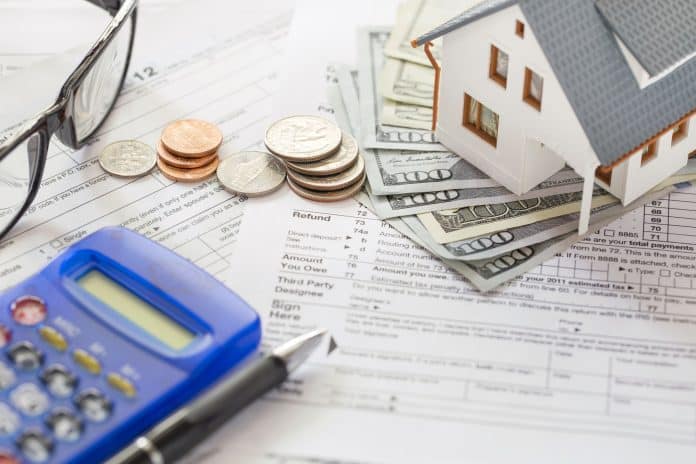
Introduction
Housing prices are on the rise and it gets harder each and every day to keep up. You may find it hard to believe but, almost 30% of the population was struggling with housing affordability in 2019, according to a Harvard University Report. This means that a large portion of the American population is burdened with housing costs. Additionally, the report states that renters are more burdened with housing affordability than homeowners. (Joint Center For Housing Studies Of Harvard University) which is why you might find beneficial information in this article. We will tell you about the different government housing opportunities that might help your current situation. (You never know what you might find.)
What is Government Housing Assistance?
Government housing assistance helps low-income families and individuals to find affordable housing. According to Investopedia, affordable housing assistance “is to provide housing for those members of society with limited income. Renters also receive assistance from the government in paying their rent each month.” In reality, you should only be spending 30% of your income on housing. If you are spending more, then you’re probably paying too much. The main aim of government housing assistance is to assist low-income families and individuals in reaching affordable housing. Most government housing assistance programs come in the form of financial assistance or housing units at reduced costs.
How Can The Government Help Your Housing Situation?
If you are having a hard time paying your rent or other housing costs, you should consider government assistance programs. As mentioned above, government housing assistance tries to help you reach affordable housing. For low-income families and individuals, affordable housing might be hard to achieve on their own. (Everyone needs a helping hand from time to time.) With that in mind, these government housing assistance programs help those who need a push in the right direction. The U.S. Department of Housing and Urban Development funds and sponsors most of these housing programs. However, there are a few programs that the U.S. Department of Agriculture sponsors, as well.
What Types of Benefits Can You Receive From Government Assistance?
There are several types of benefits that you can receive from government housing assistance programs. It is not a standard form of benefits; you will find that you can receive benefits in different forms. There are some benefits, such as the Section 8 Program, that provide housing vouchers to qualifying individuals and families. Other benefits, such as Privately-Owned Subsidized Housing Units, provide a certain number of housing units that are rented out at a reduced price. Furthermore, you should keep in mind that government assistance is not only for tenants in rental units. There are government housing assistance programs that help homeowners, too.
Check Out Mixed-Income Buildings
If you want to move away from the long waiting lists that come with government-subsidized housing programs, then why not go private? Surprisingly, there are privately-owned housing units that may be a good fit for you. Property owners and landlords own private subsidized housing units that offer a standard number of housing units to qualifying families and individuals at a reduced price. In return, these property owners receive a tax credit. These housing units are labeled as “mixed-income housing”, and are suitable alternatives to government-subsidized housing.
How you will pay for the subsidized housing unit depends on a few different factors. There are some landlords who set a standard rent rate for all tenants. But, you will find that there are other landlords that could determine your rent based on your monthly income amount. If you are interested in privately-owned subsidized housing, you will need to pass a background check and meet the landlord’s rental eligibility requirements. Additionally, your income should be less than the maximum amount of monthly income specified by the landlord.
There is a possibility that the landlord might have particular conditions that you need to follow to qualify as their tenant. This means that the eligibility requirements are based on the landlord’s preference whereas government-subsidized housing units have standard eligibility requirements.
Public Housing
Public housing is a form of rental property that the federal government subsidizes. There are different types of public housing, such as: apartment complexes, private houses, and/or duplex houses. The Department of Housing and Urban Development (HUD) funds housing units, but the local Public Housing Authority (PHA) in your area is responsible for the management and administration. To qualify, you will need to meet the local PHA’s eligibility requirements to sign a public housing lease. Simply put, moving into a public housing unit is a similar process to moving into a private landlord’s property, you will just need to meet the following eligibility requirements for public housing:
- Meet your surrounding area’s low-income conditions
- Pass a background check, but you will need references
- Be an American citizen or have a qualifying immigration status
- Meet with your local PHA agent with an in-person meeting.
Typically, you will find that public housing has long waitlists and you will need to wait a while before a unit becomes available. There is an increased demand on public housing and there is a lack of funds, so you’ll have to be patient. Remember, there are eligibility requirements that you need to meet to receive public housing. (Center on Budget and Policy Priorities)
Rental Assistance in Rural Areas
There are exclusive forms of private subsidized housing units, which the United States Department of Agriculture (USDA) offers. The Rural Rental Assistance Program provides homeowners and property owners with tax incentives by offering housing units at a reduced price for qualifying tenants. According to the USDA, in order to qualify, you must live in or be willing to move into an approved rental property with rent that has to be more than 30% of your household’s adjusted income.
If you are thinking of applying for the Rural Rental Assistance program, you will need the following:
- Proof that you have an income level that meets the eligibility
- Proof that the rental rate qualifies you for the program
- Meet the property owner’s specific eligibility conditions
According to the USDA, the Rural Rental Assistance Program “provides homeownership opportunities to rural Americans, and home renovation and repair programs. USDA also provides financing to elderly, disabled, or low-income rural residents in multi-unit housing complexes to ensure that they are able to make rent payments.” ((USDA))
Are There Other Opportunities?
Yes, there are other options for government housing assistance. This includes the housing counseling assistance program. Additionally, there are housing assistance options that are excluded from the management of the federal government. You can look into options from charity organizations or from your state government. There are some state programs that offer financial aid to assist with rental emergencies, fast cash, money management counseling services, and more! However, with charity organizations, they typically offer one-time assistance for low-income individuals and families. You can use those funds towards anything housing-related. Most of the time, these programs will focus on your income to determine if you qualify for the benefits.
In case your existing home needs repairs and you cannot afford them, there is government housing assistance to help with that too! The most common program is the Low Income Home Energy Assistance Program (LIHEAP). With LIHEAP, you can receive financial relief for various components in your home. This includes: repair of heating and cooling issues in your housing unit, payment of bills, energy crises you might face, and/or weatherization of the housing unit. (Benefits.gov)
How To Apply for Government Housing Assistance
The application process can vary from one program to another. It can also vary from one state to another. You will find that there are some states that provide online applications and others that are a bit more old-fashioned and require applications via mail. To find out what exactly you should do to apply, you should contact your local PHA. Your local PHA is mostly responsible for the management and registration of the government housing programs. However, you will find that there are standard documents that you will need for each and every housing program (public or private subsidies):
- Social Security numbers for all the members of your family
- Your driver’s license or state-issued I.D.
- Most recent pay stubs or any proof of income
- Copy of an updated bank statement
- Copy of your lease agreement
While you are filling out your application, make sure to remember that you are providing evidence of your current situation. Furthermore, do not leave out any information or lie on your application. If the program finds out that you lied or omitted something in your application with intent to be fraudulent, then they will immediately disqualify you.
Overall
Overall, government housing assistance opportunities will provide you with assistance that you could need. All that you need to do now is to start applying!
Works Cited
(USDA), United States Department of Agriculture. Housing Assistance. 2021. 28 07 2021 <https://www.usda.gov/topics/rural/housing-assistance>.
Benefits.gov. Low Income Home Energy Assistance Program (LIHEAP). 29 07 2021 <https://www.benefits.gov/benefit/623>.
Center on Budget and Policy Priorities. Federal Rental Assistance Fact Sheets. 01 06 2021. 28 07 2021 <https://www.cbpp.org/research/housing/federal-rental-assistance-fact-sheets#US>.
Joint Center For Housing Studies Of Harvard University. THE STATE OF THE NATION’S HOUSING 2020. 2020. 12 10 2021 <https://www.jchs.harvard.edu/sites/default/files/reports/files/Harvard_JCHS_The_State_of_the_Nations_Housing_2020_Report_Revised_120720.pdf>.


















